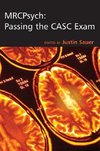
Music historians
Source: Wikipedia. Pages: 53. Chapters: American music historians, Blues historians, Canadian music historians, German music historians, Albert Schweitzer, Alan Lomax, John Lomax, Helen Hartness Flanders, Liudmila Kovnatskaya, Hermann Ritter, Nat Hentoff,... Viac o knihe
Produkt je dočasne nedostupný
16.28 €
bežná cena: 18.50 €
O knihe
Source: Wikipedia. Pages: 53. Chapters: American music historians, Blues historians, Canadian music historians, German music historians, Albert Schweitzer, Alan Lomax, John Lomax, Helen Hartness Flanders, Liudmila Kovnatskaya, Hermann Ritter, Nat Hentoff, Alan Walker, Elijah Wald, David Szatmary, Martin Eybl, Lorenz Christoph Mizler, John McGlinn, Samuel Charters, Robin Kelley, Greil Marcus, ED Denson, Don Cusic, Anahit Tsitsikian, Robert Palmer, Rosetta Reitz, Gerard Béhague, Glenda Goss, Paul Oliver, Ann Savoy, Maja Trochimczyk, Skip Heller, Simon Morrison, Leo Schrade, John Davis, Philipp Spitta, Alan Cross, Clifford Antone, Ray V. Smith, Michael Brooks, Johann Nikolaus Forkel, A. B. Spellman, Allan Slutsky, Jakob Adlung, Albrecht Dümling, Carl Dahlhaus, David Freeman, Anna Maria Busse Berger, Roger Dopson, Nanda Lwin, Don Kent, Joel Whitburn, Ernst Lert, Marcel Cellier, Mike Harding, Henry Theophilus Finck, Gayle Dean Wardlow, Kevin Fontenot, Gilles Potvin, Rob Bowman, Andrew Bisset, Kevin Clarke, Gilbert Chase, George Mitchell, Jean Monnet, Frank Kofsky, Bill Malone, William Arms Fisher, John Tasker Howard, Floyd Levin, Don Aters, Robert "Mack" McCormick, Kay Slocum, Kevin Bazzana, Wilhelm Altmann, Richard Crawford, Emerson Whithorne, David K. Hildebrand, Suzanne G. Cusick. Excerpt: Albert Schweitzer (14 January 1875 - 4 September 1965) was a German (Alsatian) theologian, organist, philosopher, physician, and medical missionary. He was born in Kaysersberg in the province of Alsace-Lorraine, in the German Empire. Schweitzer, a Lutheran, challenged both the secular view of Jesus as depicted by historical-critical methodology current at his time in certain academic circles, as well as the traditional Christian view. He depicted Jesus as one who literally believed the end of the world was coming in his own lifetime and believed himself to be a world savior. He received the 1952 Nobel Peace Prize for his philosophy of "Reverence for Life", expressed in many ways, but most famously in founding and sustaining the Albert Schweitzer Hospital in Lambaréné, now in Gabon, west central Africa (then French Equatorial Africa). As a music scholar and organist, he studied the music of German composer Johann Sebastian Bach and influenced the Organ reform movement (Orgelbewegung). Schweitzer's passionate quest was to discover a universal ethical philosophy, anchored in a universal reality, and make it directly available to all of humanity. Albert Schweitzer's birthplace, Kaysersberg.Born in Kaysersberg, Schweitzer spent his childhood in the village of Gunsbach, Alsace (German: ), where his father, the local Lutheran-Evangelical pastor, taught him how to play music. Long disputed, the predominantly German-speaking region of Alsace or Elsaß was annexed by Germany in 1871; after World War I, it was reintegrated into France. The tiny village is home to the Association Internationale Albert Schweitzer (AIAS). The medieval parish church of Gunsbach was of a special Protestant-Catholic kind found in various places in Germany even today. It was shared by the two congregations, which held their prayers in different areas of the same church at different times on Sundays. This compromise arose after the Protestant Reformation and the Thirty Years War. Schweitzer, the pastor
- Vydavateľstvo: Books LLC, Reference Series
- Formát: Paperback
- Jazyk:
- ISBN: 9781157543695



 Anglický jazyk
Anglický jazyk 








